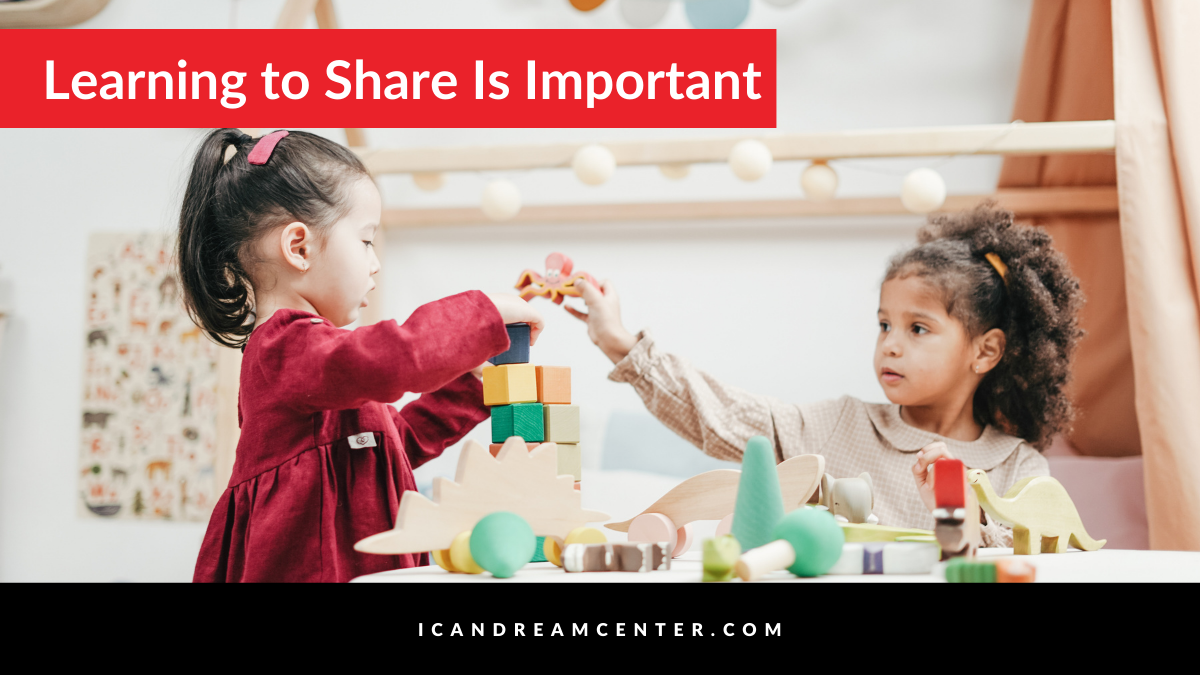
Learning to Share Is Important
All young children struggle on some level with sharing. This is a common developmental milestone for children. For the students in the Little Dreamers Early Childhood Education program, sharing is sometimes a challenge, and it is an important area of focus for our social workers and instructors.
Why Sharing Is Important
Sharing toys, learning tools, and even an instructor’s attention can create challenges within the classroom. These challenges range from behavioral issues to hurt feelings, and that is why teaching the students the value of sharing is so essential.
Even as a graduate-level social work intern, watching our students practice social skills such as sharing reminds me of the feelings I had about sharing when I was a child. Feelings of anger, frustration, sadness, all come flooding back seeing students struggle to share with one another.
Some Tips That Work
When asking a student to share, it is important to keep respect top of mind. Respecting students’ belongings and desire to keep those belongings is important. As adults, when we want something a student has, we should ask permission. Showing students that you will take good care of their belongings or that another student will, relieves students of the needs to hold onto things too tightly.
Turning sharing into a fun experience for the students is one key to success. For instance, strategize and find collateral that will work for individual students. If a student will be motivated by moving to a new play area, or by gaining access to a new art project as a reward for sharing, leverage these rewards to motivate students to reach sharing goals.
Leading by example is an excellent way to build trust and model our expectations. Offering to lend your “own” possessions to children is meaningful modeling. For instance, if you are coloring with the children, and have the most popular supply (I am looking at you rainbow crayon!), you can model sharing and sharing words by offering the crayon to a child. Try: “Evie, I am done with the rainbow crayon. I would like to share it with you if you would like to use it now.” This practice goes beyond possessions. Sharing our own experiences, feelings, and ideas are also powerful examples of sharing.
Sharing Is A Forever Skill
Children need to learn to share so they can make and keep friends, play cooperatively, take turns, negotiate, cope with disappointment, and more. Sharing teaches children about compromise and fairness. They learn that if we give to others, we can get some of what we want too. Sharing is a forever skill that helps us move through life in a healthy and positive way. We believe all children can learn this important skill. The key to success is to believe in students, model expected behavior, and continue to promote kindness and empathy throughout the educational process!
